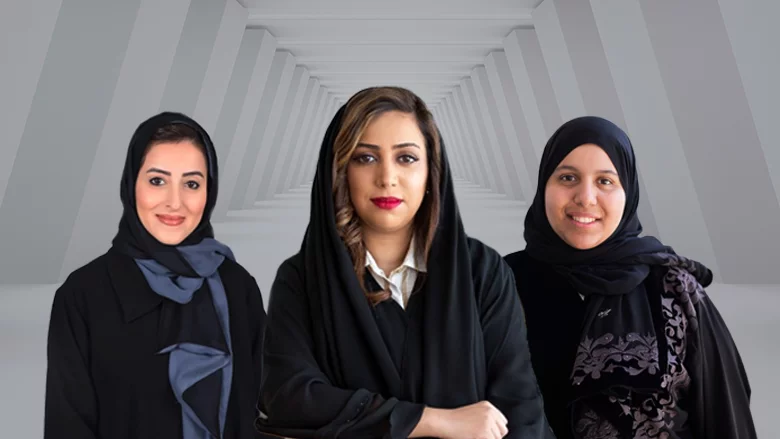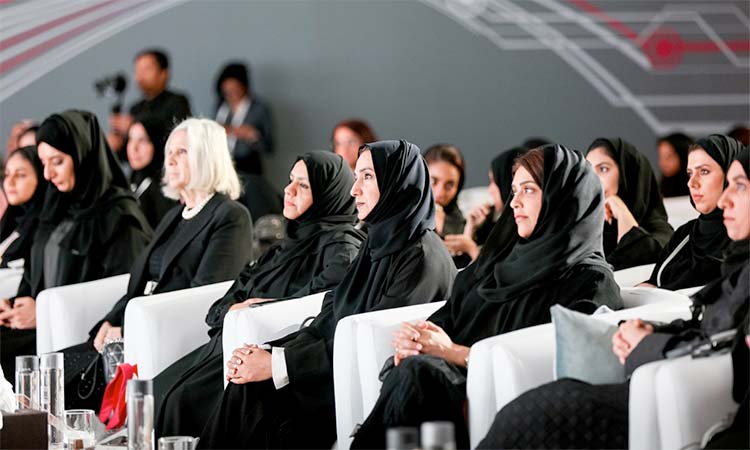In recent years, women across the Gulf region have started making their mark in one of the most competitive fields in the world — technology. From founding startups to leading innovation at global companies, women in countries like the UAE, Saudi Arabia, Qatar, Bahrain, Kuwait, and Oman are now being recognised as serious players in tech leadership.
This wave of change did not happen overnight. It is the result of years of education reforms, women empowerment programs, and shifting mindsets across the region. And today, the Gulf is finally witnessing a rise in female tech leaders who are not only succeeding but also inspiring others to follow their path.
Breaking the Stereotypes, One Line of Code at a Time
For a long time, technology was seen as a male-dominated industry across the world. The Gulf was no exception. Many women interested in STEM (science, technology, engineering, and math) faced social and workplace challenges, including limited access to mentorship and lower representation in tech companies.
But that’s changing — and changing fast.
Take, for example, Sarah Al Amiri, the Minister of State for Advanced Technology in the UAE and the Chairwoman of the UAE Space Agency. Her leadership in the country’s Mars mission was a turning point. It proved that Gulf women are not just participants in tech — they are leading it.
Similarly, in Saudi Arabia, tech events like LEAP and national initiatives such as Vision 2030 have opened massive doors for women in digital fields. In fact, recent reports show that more than 30% of the tech workforce in Saudi Arabia is now made up of women — one of the highest rates globally.
Education: The Foundation of the Tech Journey
One of the key reasons for this rise is access to quality education. Across the Gulf, governments have heavily invested in higher education and scholarships for women in STEM. Female students now dominate science and technology courses at top universities in the region.

In Qatar, for instance, women make up over 60% of graduates in STEM fields. Institutions like Qatar University and Education City have played a big role in encouraging young girls to pursue careers in tech.
And it’s not just formal education. Across the UAE and Bahrain, coding bootcamps, online workshops, and tech accelerators have specifically targeted women to train them in AI, cybersecurity, app development, and more.
This focus on early tech education is creating a pipeline of young women ready to enter the workforce — and lead it.
The Rise of Women-Led Tech Startups
Leadership doesn’t always mean being at the top of an existing company. Many women in the Gulf are choosing to create their own tech businesses — and they’re thriving.
In Kuwait, entrepreneur Fatima Al Qadiri has built a successful digital music production company. In the UAE, platforms like Womena are helping female founders launch innovative startups in health tech, fintech, and e-commerce.
The number of women-led startups in the Gulf is increasing each year, thanks to access to funding, government incubators, and women-centric business networks. These founders are using technology to solve real-world problems — from mental health to online education.
This spirit of entrepreneurship shows that Gulf women are not just joining the tech industry; they are building it from the ground up.
Government Support Is Fueling the Movement
Governments across the Gulf have recognised the importance of women in the workforce, especially in future-focused fields like technology.
In Saudi Arabia, Vision 2030 includes strong goals for increasing female workforce participation. Tech companies operating in the kingdom are encouraged — and often required — to hire women in leadership roles.
The UAE launched the Emirati Women in Tech initiative to connect female tech professionals with mentors, training, and global exposure. Bahrain’s Supreme Council for Women has also developed tech-focused programs to ensure equal participation.
This level of top-down support is helping create a system where women can grow their careers without the roadblocks they once faced.
Big Tech Companies Are Hiring More Women Leaders
It’s not just startups or government initiatives pushing for women in tech. Big international tech companies like Google, Microsoft, Amazon, and IBM have increased their hiring and training of Gulf women in leadership roles.

These companies are opening local offices, hosting tech events, and providing skill development programs aimed at women. As a result, more women are working as engineers, developers, data scientists, and even country heads at global tech giants.
This trend is not only boosting the region’s economy but also sending a powerful message: talent has no gender.
The Road Ahead: Challenges Still Remain
While there’s been great progress, it’s important to remember that challenges still exist.
Many women still face cultural and social barriers, especially in more conservative parts of the region. Some workplaces are yet to adopt flexible policies like remote work, maternity leave, or mentorship programs, which are critical for long-term career growth.
There’s also the issue of pay gaps, which still exists between men and women in tech leadership roles across the Gulf.
However, with continued advocacy, policy support, and awareness, these challenges are being addressed. And more importantly, women in the region are speaking up — demanding change and pushing for equality.
Inspiring the Next Generation
One of the most powerful impacts of the rise of women in tech leadership is the inspiration it brings to young girls.
When girls in Saudi Arabia, the UAE, or Bahrain see women who look like them building apps, leading companies, and giving keynotes at tech summits, it changes what they believe is possible.
Initiatives like Girls Who Code Arabia, school tech clubs, and social media campaigns are helping to shape the next generation of women leaders in the tech industry.
The journey is just beginning, but it’s full of promise.
Final Thoughts: Gulf Women Are Building the Future
Women in the Gulf are no longer waiting for a seat at the table — they are building their own. From launching startups to leading national space programs, they are showing that tech is not just a man’s world.
The Gulf region, once seen as behind in women’s workforce participation, is now becoming a global example of what’s possible when women are empowered, supported, and celebrated.
Also read: Bahrain to Build First-Ever Underwater Sculpture Museum



